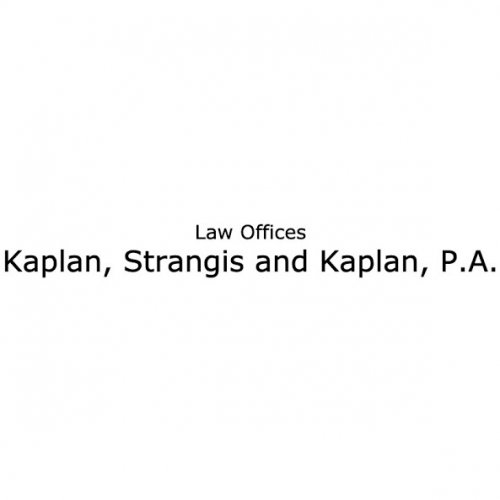Best Project Finance Lawyers in Minnesota
Share your needs with us, get contacted by law firms.
Free. Takes 2 min.
Or refine your search by selecting a city:
List of the best lawyers in Minnesota, United States
About Project Finance Law in Minnesota, United States
Project finance is a specialized legal and financial method used to fund large-scale infrastructure and industrial projects, such as renewable energy installations, transportation systems, and public utilities. In Minnesota, project finance typically relies on the projected cash flows generated by the project itself to secure financing, rather than the balance sheets of project sponsors. Minnesota's project finance landscape is shaped by federal regulations, state statutes, and local permitting requirements that work together to facilitate, regulate, and oversee complex financing structures for public-private partnerships, energy ventures, and major development projects.
Why You May Need a Lawyer
A lawyer specializing in project finance can play a critical role in various stages of your project. Common situations where you might require legal assistance include:
- Structuring deals and negotiating complex financing arrangements between banks, investors, and project sponsors
- Drafting and reviewing contracts for construction, operation, and maintenance
- Ensuring compliance with local, state, and federal regulatory requirements
- Securing permits, licenses, and approvals from multiple government agencies
- Managing risks related to environmental regulations and community impact assessments
- Resolving disputes between stakeholders, such as lenders, contractors, or public authorities
- Facilitating public-private partnership agreements for infrastructure development
Project finance is highly complex, and mistakes can lead to costly delays or legal complications. An experienced lawyer can protect your interests and help ensure your project is legally sound and financially viable.
Local Laws Overview
Project finance in Minnesota is governed by a mix of federal statutes, Minnesota state laws, and specific county or municipal codes. Key aspects include:
- Permitting and Zoning Regulations - Projects often require multiple permits at state and local levels, including environmental impact statements and zoning variances. The Minnesota Environmental Policy Act (MEPA) mandates environmental review for significant projects.
- Public-Private Partnerships (P3s) - Minnesota has specific laws enabling public entities to partner with private organizations for infrastructure projects, especially in transportation and energy.
- Tax Incentives and Credits - The state offers tax credits and incentives for qualifying projects, such as renewable energy developments and affordable housing.
- Financing Structures - Legal structures like non-recourse and limited recourse financings are commonly used, where lenders rely primarily on project revenues for repayment.
- Bankruptcy and Lender Rights - Minnesota follows both federal bankruptcy law and state-specific lender protections, which can impact how defaults and foreclosures are handled.
- Contractual Law - Minnesota law governs the enforceability of the various contracts needed for construction, management, and operation of financed projects.
Project finance projects in Minnesota must also comply with federal statutes like the Clean Water Act, National Environmental Policy Act (NEPA), and other relevant federal financing and environmental regulations.
Frequently Asked Questions
What is project finance and how does it differ from traditional corporate finance?
Project finance is a method for funding projects where lenders rely on the cash flow generated by the project for repayment, using project assets as collateral. In contrast, traditional corporate finance relies on the creditworthiness and assets of the company sponsoring the project.
What types of projects commonly use project finance in Minnesota?
Typical projects include wind farms, solar arrays, highways, water treatment facilities, stadiums, and public-private partnership developments in sectors like transportation, utilities, and infrastructure.
What contracts are essential in a project finance transaction?
Key contracts include loan agreements, construction contracts (EPC), operation and maintenance agreements, supply and offtake agreements, and partnership or joint venture agreements.
Who are the typical parties involved in a project finance deal?
Parties usually include project sponsors, lenders or investors, contractors, operators, governmental agencies, and sometimes off-takers (entities agreeing to purchase the project's output).
What regulatory approvals are needed for project finance in Minnesota?
Approvals may involve environmental permits, zoning variances, utility interconnection agreements, and local or state development approvals, depending on the project type and location.
Are there local incentives for financing renewable energy projects?
Yes, Minnesota provides state tax incentives, grants, and credits for qualifying renewable energy projects such as wind, solar, and biomass facilities.
What are the main risks in a project finance transaction?
Common risks include construction delays, cost overruns, regulatory changes, market demand fluctuations, and operational underperformance.
How does Minnesota law treat bankruptcy or defaults in project finance?
Project finance deals are structured so lenders have limited or non-recourse claims, primarily to project assets. State laws supplement federal bankruptcy law in handling lender rights and contract enforcement.
Can foreign investors participate in Minnesota project finance?
Yes, foreign investors frequently participate, though they may need to comply with additional federal regulations, such as those enforced by the Committee on Foreign Investment in the United States (CFIUS).
How do I choose the right lawyer for a project finance matter?
Seek lawyers with proven experience in project finance, local regulatory knowledge, and an understanding of the specific industry or project type. Referrals, professional directories, and bar associations can be good starting points.
Additional Resources
If you are seeking more information about project finance in Minnesota, these resources and organizations may be helpful:
- Minnesota Department of Commerce - Oversees energy and utility projects, offers guides and incentives information
- Minnesota Pollution Control Agency (MPCA) - Issues environmental permits and provides guidance on environmental compliance
- Minnesota Public Utilities Commission - Regulates utility projects and approves certain energy and infrastructure projects
- The Office of the State Auditor - Provides oversight of public financing and public-private partnership activities
- American Bar Association (ABA) Section of Public Contract Law - Offers educational material on project finance and public-private partnerships
- Local bar associations - Can connect you with qualified legal professionals specializing in project finance
Next Steps
If you are considering or involved in a project finance venture in Minnesota, it is important to:
- Identify the scope, size, and intended purpose of your project
- Document key details, expectations, and potential challenges
- Research relevant laws, permits, and regulatory requirements early in the process
- Consult with a qualified project finance lawyer to evaluate your project's legal structure, contracts, and compliance status
- Stay informed about relevant tax credits and incentive programs available in Minnesota
- Maintain clear communications with all stakeholders throughout the project lifecycle
A knowledgeable lawyer can help guide you through the legal and regulatory complexities associated with project finance in Minnesota, protecting your interests and helping your project reach a successful conclusion.
Lawzana helps you find the best lawyers and law firms in Minnesota through a curated and pre-screened list of qualified legal professionals. Our platform offers rankings and detailed profiles of attorneys and law firms, allowing you to compare based on practice areas, including Project Finance, experience, and client feedback.
Each profile includes a description of the firm's areas of practice, client reviews, team members and partners, year of establishment, spoken languages, office locations, contact information, social media presence, and any published articles or resources. Most firms on our platform speak English and are experienced in both local and international legal matters.
Get a quote from top-rated law firms in Minnesota, United States — quickly, securely, and without unnecessary hassle.
Disclaimer:
The information provided on this page is for general informational purposes only and does not constitute legal advice. While we strive to ensure the accuracy and relevance of the content, legal information may change over time, and interpretations of the law can vary. You should always consult with a qualified legal professional for advice specific to your situation.
We disclaim all liability for actions taken or not taken based on the content of this page. If you believe any information is incorrect or outdated, please contact us, and we will review and update it where appropriate.
Browse project finance law firms by city in Minnesota
Refine your search by selecting a city.









